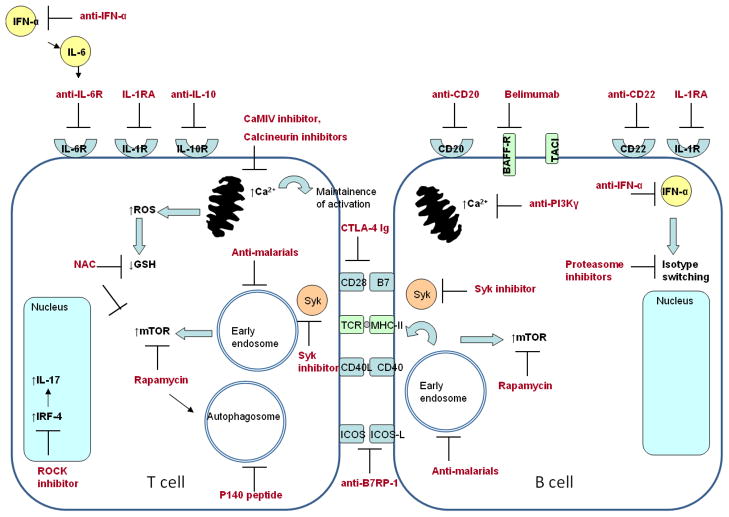Fig. 2.
Biological targets under investigation for treatment of SLE. Depletion of autoreactive B cells is achieved by treatment with monoclonal antibodies against CD20 and CD22. CD22 also depletes plasma cells, which can also be targeted through blockade of isotype-switching by proteasome inhibition or anti-IFNα antibodies. Activation of lupus B cells can be inhibited by targeting survival (BAFF targeted by Belimumab, APRIL targeted by TACI-Ig) and co-stimulatory signals. Lupus T cell activation is targeted by blockade of cytokine action (IL-6, IL-1, and IL-10), cytokine production (IL-17), and co-stimulation (CD28-B7 interaction by CTLA-4 Ig, ICOS-ICOS ligand interaction by anti-B7RP-1 antibodies).
Activation of SLE T and B cells results in a rise of cellular Ca2+, which results from mitochondrial dysfunction, mTOR activation, and endocytic pathway activation. Intracellular Ca2+ can be modulated by treatment with calcium calmodulin kinase inhibitors, calcineurin inhibitors, and anti-PI3Kγ. Early endosome and mTOR activation in SLE T and B cells are inhibited with anti-malarials and rapamycin. Autophagy in SLE lymphocytes can be reduced by treatment with P140 peptide and anti-malarial drugs.
Of these targets, antimalarial drugs and Belimumab have been FDA-approved for SLE disease management. The other targets mentioned are under intensive investigation in pre-clinical and clinical studies.

